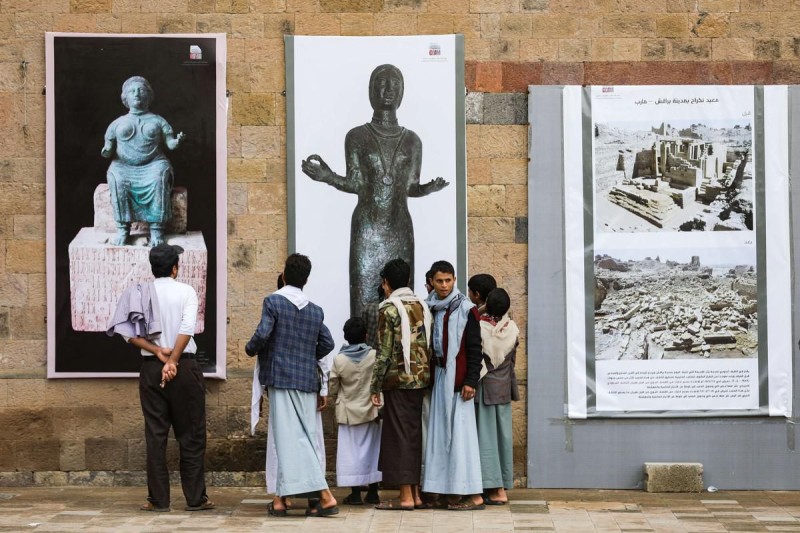Fuel crisis in Sanaa for the first time since the armistice took effect , Residents says


Residents in the Yemeni capital, Sanaa, said a stifling fuel crisis began on Saturday, for the first time since a United Nations-sponsored truce took effect five months ago, adding to the suffering of the residents.
This comes as the Houthi group, which controls most of the major population and urban centers in northern and western Yemen, accused the Saudi-led coalition of continuing to detain nine fuel ships that were on their way to Hodeidah ports on the Red Sea, in violation of the humanitarian truce in force.
The oil company controlled by the Houthi group in Sanaa said in a tweet on Twitter, "Given the continued violation of the armistice by the coalition of aggression by detaining nine oil ships, and the deliberate supply crisis that caused, the Yemeni Oil Company announces that it is forced to work with an emergency plan starting tomorrow morning, Sunday." .
A witness in Sanaa told Reuters that dozens of cars are queuing in front of government and private stations, which have closed their doors and stopped providing fuel to citizens since Saturday afternoon.
Residents in Sanaa and northern Yemen fear that the fuel crisis will worsen, leading to an increase in its prices on the black market and an escalation of the already high prices of foodstuffs and other supplies.
The oil company also said that the United Nations mission in Yemen "is a partner in the siege through the instructions sent to the ships authorized to go to the detention area and stay there, pending the permission of the coalition warships."
And it added in a statement that "fuel shipments incurred delay fines during the truce period, amounting to 11 million dollars due to piracy, detention and delaying their entry to the ports of Hodeidah."
She pointed out that only 33 fuel ships arrived at the ports of Hodeidah out of 54 ships that are supposed to enter during the temporary truce period that ends on October 2.
She said that since the last extension of the truce, no fuel vessel has been allowed into the port of Hodeidah.
On August 2, the United Nations announced the extension of the armistice agreement between the two parties, signed on April 2, for an additional two months, for the third time.
Under the truce, commercial flights to and from Sanaa airport were resumed and allowed the flow of fuel to the Houthi-controlled port of Hodeidah, which helped end a fuel crisis that the population in Houthi-controlled areas had been suffering from over the past years.
The Saudi-led coalition has controlled the Yemeni air, sea and land ports since its intervention in the war that has been going on there for eight years.

Sana’a – The General Authority for Antiquities and Museums, operating under the control of the Houthi militia in the occupied capital S…

Hadramout — UNESCO has officially inscribed Al-Dan Hadrami, a traditional poetic and musical art form from Yemen’s Hadramawt region, on…

NewYourk  -- The renowned auction house Sotheby’s has revealed plans to present one of the rarest surviving Yemenite Torah scrolls in it…